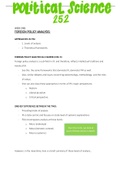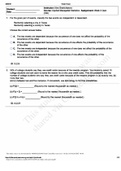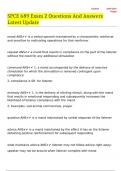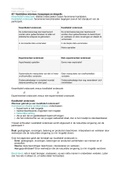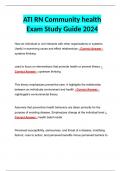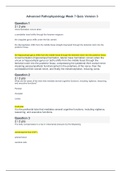Class notes
Political Science 252 - Foreign Policy Analysis
- Course
- Political Science 252
- Institution
- Stellenbosch University (SUN)
This document is based on the lecture slides, as well as what was said in lectures and aspects of the readings. It covers all Term 3 work which focuses on Foreign Policy Analysis internationally and within South Africa. It goes into depth, contains diagrams, and asks questions that the lecturer sta...
[Show more]
